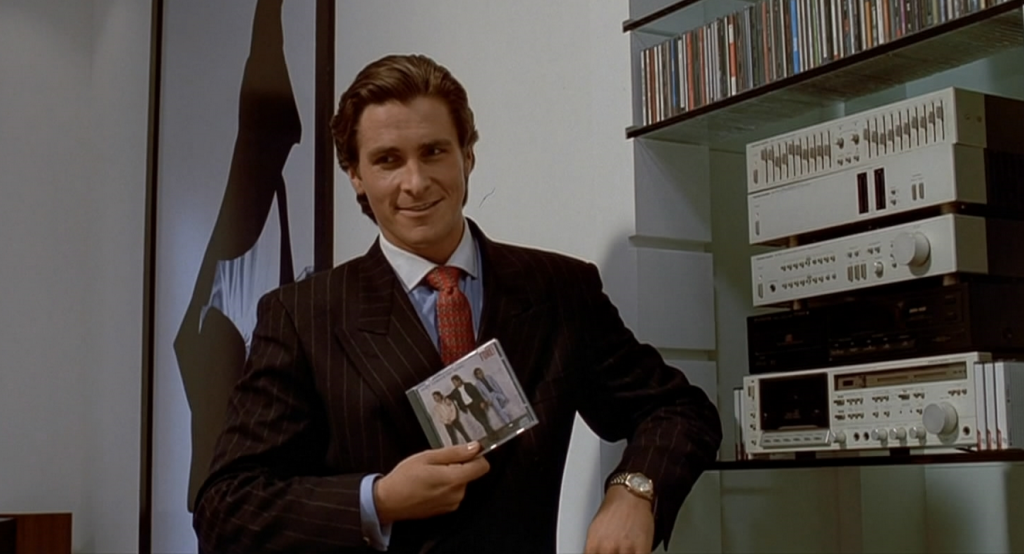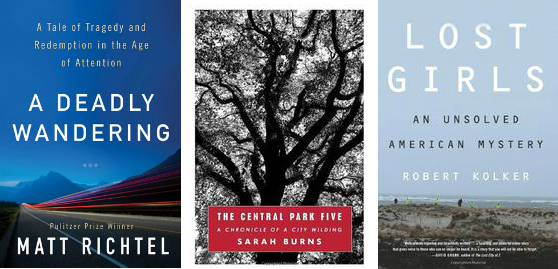Kill Your Darlings: 101 Pieces of Advice for Writers & Serial Killers
Editor's Note: To finish out 2018, we're revisiting some of our favorite blog posts from the past year. This post was originally published on 6/21/18.
Murder and writing so often go hand in hand. How much difference is there really between the red-inked remains of a harshly-edited manuscript and the blood-red remains of what once was a human being? Here are 101 kernels of advice for both the writer and the serial killer, ready to be taken to heart, as if slammed there by a very sharp knife. Go forth and create masterpieces of life’s very blood!
Or just write something. Whatevs.
1. Kill your darlings.
2. Trophies aren’t important. What’s important is the work.
3. To be really good at your craft, you must be invisible.
4. Don’t do it for money, do it because you have to.
5. Start as close to the end as possible.
6. You might want to work under another name, so it doesn’t impact your day job.
7. Never be passive when you can be active.
8. Employ a simple, straightforward style.
9. Your opening should startle.
10. Finish what you start.
11. Don’t wait for inspiration. Discipline is the key.
12. Don’t get too talky.
13. Slowly intensify the conflict.
14. Familiarize yourself with the work of the masters.
15. But, don’t try too hard to imitate mentors.
16. Work in a comfortable setting.
17. Curb the ego.
18. Learn how to handle rejection.
19. A professional is an amateur who didn’t quit.
20. Grow a thick skin.
21. Quantity produces quality.
22. Be brave; you’re putting yourself out there.
23. Be proud of your achievements.
24. Keep your tools handy. You never know when inspiration will strike.
25. Allow yourself to move past the possibility that what you do will be terrible.
26. If you're having trouble, keep hammering away, you'll find what you're looking for soon enough.
27. Clip newspaper and magazine articles for inspiration.
28. The right equipment makes the work go faster.
29. Know your ending before you start.
30. Makes sure you tie up all the loose ends.
31. Talent matters less than tenacity.
32. Don’t be concerned with copycats. Their work does not diminish yours.
33. Don’t bother with society’s opinion. Do it for just one other person, even if that other person is you.
34. Inspiration can be found in unlikely places; visit a zoo or an abandoned factory.
35. Don’t respond to your critics. The work should speak for itself.
36. But be open to criticism, as it will direct your next masterpiece.
37. Don’t stop until your reach the end.
38. Think hard before collaborating, as it is often harder than going alone.
39. Beware the predatory agent.
40. Time travel will not solve your problems.
41. Don’t be discouraged if you don’t gain publicity. Newspapers are always hungry for a new headline-grabber.
42. Precision comes from practice.
43. Work with what you know, learn about what you don’t.
44. To begin, you may have a special place where you can work. But remember, a professional can do their job anywhere.
45. Don’t let noise distract you.
46. Work from the heart outward.
47. Be a sadist—it’s okay to push people out of their comfort zone.
48. Do not shy away from the grotesque.
49. Be sensual.
50. Try starting with a skeleton.
51. Your skills are your muscles, the more you use them the stronger they become.
52. Resist the urge to go back over what you’ve already done.
53. Remember, you are in the emotion-manipulating business.
54. Get to the juicy parts quickly.
55. It’s good to struggle.
56. Eliminate all interruptions.
57. Detach yourself from the outcome. It’s about the doing, not the result.
58. Let your imagination go wild.
59. Flaws are sexy.
60. Remember, everyone has a reason to live.
61. Don’t back away from what makes you uncomfortable.
62. Everyone dies, it’s the journey to that end that matters.
63. Don’t get bogged down with details; you can clean it up later.
64. Go right for the gut.
65. To truly succeed, hold nothing back.
66. Don’t do anything for “exposure.”
67. You won’t know your limits until you’ve challenged yourself.
68. If it is possible to cut something out, cut it out.
69. If you're having trouble, keep hammering away, you'll find what you're looking for soon enough.
70. Carve your own niche in the world.
71. Keep your mind sharp and your tools sharper.
72. Use twists sparing. Too many can break things down too quickly.
73. Open with violence. If it’s good enough for Shakespeare…
74. End with violence. If it’s good for Kit Marlowe, it’s good enough for you.
75. Research is fine, but it isn’t the same as first-hand experience. Eventually, you’ll have to get your hands dirty.
76. You don’t need fancy gadgets; generations ago people had success with much cruder instruments.
77. Contrary to urban legends, drugs and alcohol will not make your work better.
78. Don’t be afraid to get political; people need to be shaken up.
79. The best art cuts to the heart and the head.
80. Don’t be afraid to draw from other disciplines. Anatomy, psychology, toxicology and carpendantry can be surprisingly useful.
81. Agents will always chase success.
82. Innovation means taking risks.
83. It’s okay to break a few spines in your hunger for learning.
84. Walk around in another’s skin.
85. It helps to break things up into manageable chunks.
86. Take charge of the voices in your head.
87. Never forget, your job is to make your fantasies a reality.
88. A new project can be intimidating, but with a confidence, you can overpower it.
89. Signature clothing is nice, but what’s important is your follow-through.
90. Don’t talk about it, do it.
91. Your goal should be to knock ‘em dead. Never forget that.
92. Poetry is pleasant, but rarely as effective as a sudden gut-punch.
93. Work on a clean surface.
94. Know when you’re finished. No sense in beating a corpse.
95. Don’t bore people to death.
96. No matter your medium, make sure they get the point.
97. People want to see the wounds.
98. If in a tight spot, go deeper.
99. You want to be known for the quality of your work, not the contents of your biography.
100. Respect the deadline.
101. You’ll never finish if you don’t start.

Jadzia Axelrod
Jadzia Axelrod is an author, an illustrator, and a world changer. Throughout her eventful life she has also been a circus performer, a puppeteer, a graphic designer, a sculptor, a costume designer, a podcaster and quite a few other things that she’s lost track of but will no doubt remember when the situation calls for it.She is the writer and producer of “The Voice Of Free Planet X” podcast, were she interviews stranded time-travelers, low-rent superheroes, unrepentant monsters and other such creature of sci-fi and fantasy, as well as the podcasts “Aliens You Will Meet” and “Fables Of The Flying City.” The story started in “Fables Of The Flying City” is concluded in The Battle Of Blood & Ink, a graphic novel published by Tor.She is not domestic, she is a luxury, and in that sense, necessary.



